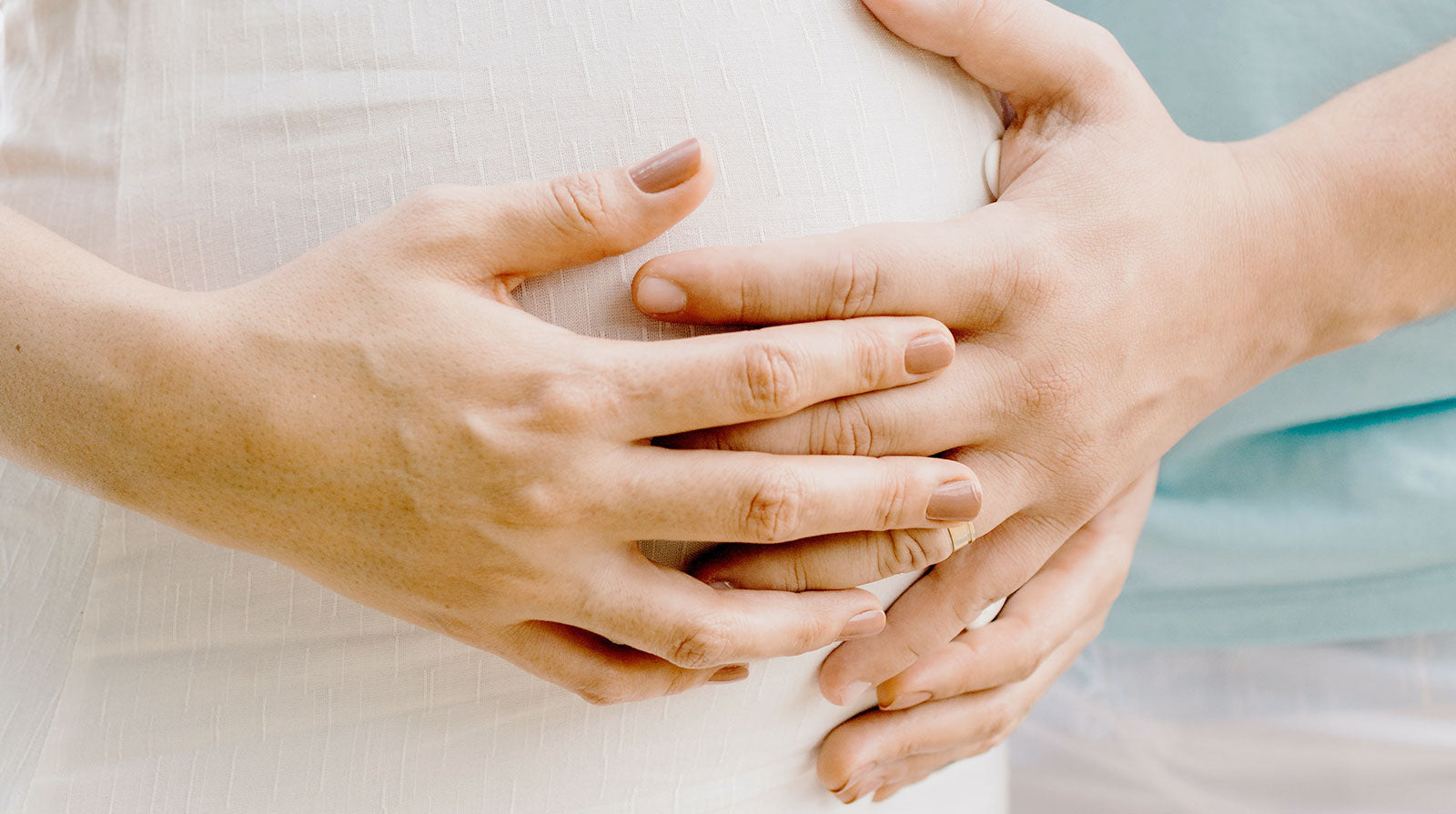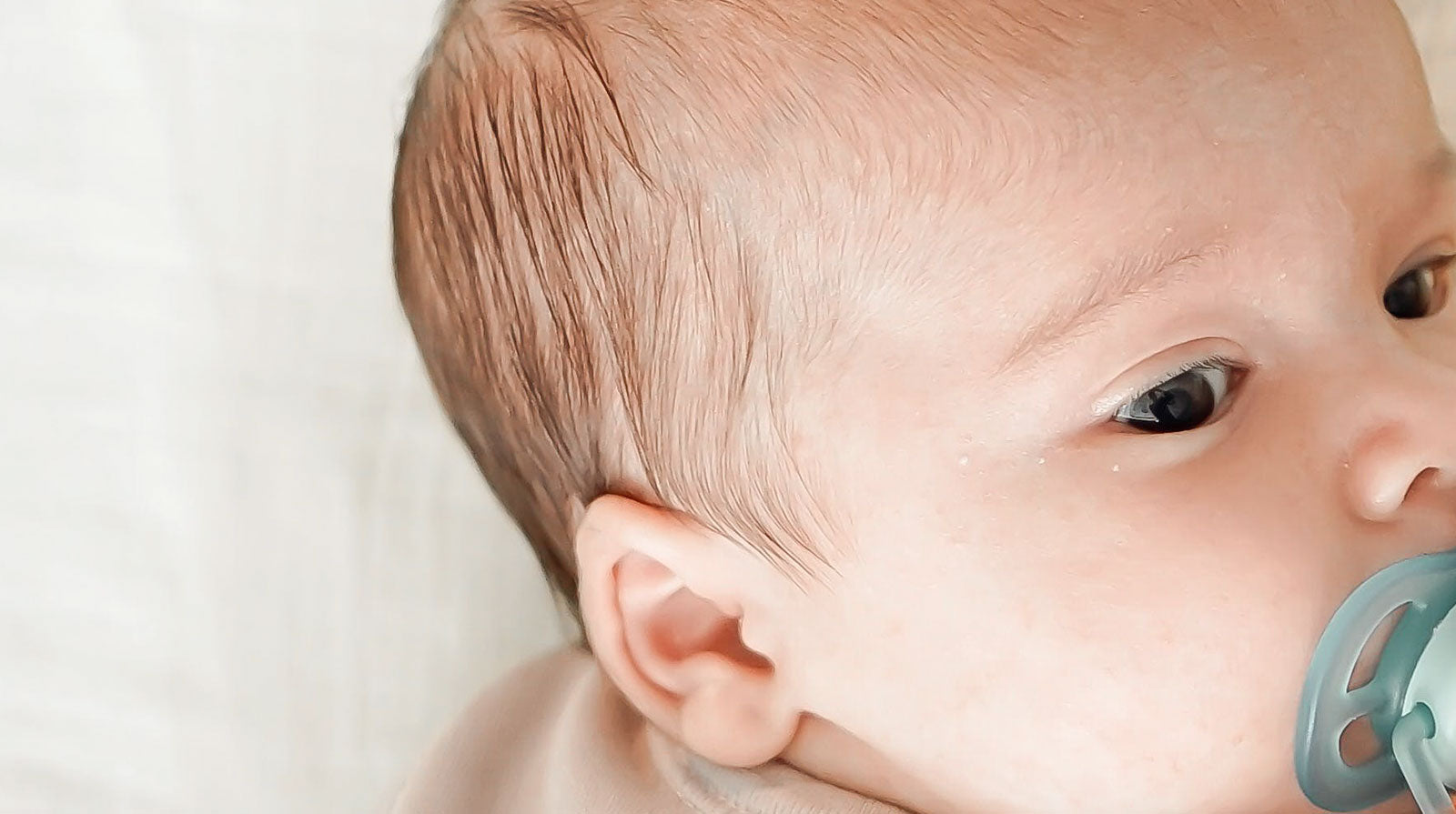#03
Baby's five senses
1 Vision and Hearing


The five senses are formed from the time we are in our stomachs
Humans are mammals, but there are differences between different classifications of the same mammal. Some animals, such as horses and cows, are able to walk soon after birth. These have the same five senses developed as their parents, only their bodies are smaller. The foetal period when the baby is in the abdomen is rather long, and only one or two babies are born. On the other hand, dogs, cats and rats are animals that cannot stand up immediately after birth and remain immature and cowering, drinking only from their mother's breast. Their fetal period is short and multiple, they are blind and their senses are not developed.
So which is it for humans? If you think about it, we are born with a long foetal period and some development of the senses, although we cannot walk immediately after birth. Yes, humans belong to both and neither. Normally, it would seem that they should be able to walk right away because their senses are developed, but until they can walk, they spend a year growing up to be able to walk while drinking their mother's breast, having their nappies changed and being bathed. how they interact with the people who nurture them over the course of a year, The way they are nurtured and nurtured during the first year makes them human through their five senses, such as trust, security, warmth and kindness towards others. It is not only the mother's relationship with her child, but also the relationships with the people around her that make her a human being. In fact, this is a very important year for the baby.
Let's start by looking at what the five senses are and how they develop in babies one by one. The five senses are sight, hearing, smell, taste and touch. The five senses start to form to some extent when the baby is still in the tummy.


VisionThe baby's eyes are blurry.
Babies' eyes are often thought to be blind, but they are not totally blind. They are still unable to recognise colours, and are in a black-and-white world, looking at shapes in a daze. They are able to recognise light and dark and may show signs of dazzle. As they cannot focus with both eyes, they are mostly moving their eyeballs aimlessly; they can vaguely see objects about 30 cm in size, so mums should bring them close to their faces to show them. Dads in particular are not used to holding her and often have to call out to her from a distance, but hold her and show her your face to make sure she remembers you.
After the age of two months, vision gradually develops. As they gradually become able to recognise colours, they will start to follow with their eyes when toys with clear colours such as red and green are moved around.
After the age of three months, the child starts to focus and can recognise the facial expressions of mum and dad.
From around 6 months, they gradually become more focussed and able to appreciate the size of objects. They show interest in what they see and try to grasp it with their hands. They are also able to touch and play with toys on their own.
After 8 months, shyness begins as the child develops the ability to remember people's faces. Shyness is evidence of the development of the eyes and brain.
Vision varies from person to person, but is 0.2 at about 1 year, 0.5 at 2 years, 0.6 at 3 years and vision development is complete at about 6-8 years of age. Smartphones and television are convenient and children enjoy them, but it is important to protect the eyes carefully by adopting them well and making it a habit to set a certain amount of time.


HearingHearing is very important when learning a language.
Unlike sight, hearing is developed from the time the child is in the tummy. In the tummy, the baby senses and hears the sound of blood flowing through the mummy's body, the sound of the heart and the voice of the mummy and daddy. Therefore, they recognise mummy's voice as soon as they are born. However, the reason why they don't react much is because their brains have not yet developed enough to distinguish what the sound is. They are startled by sudden loud noises and stop crying at the sound of mama's voice.
Around the age of three months, when they start to recognise 'sounds', they start to respond. They start to make noises such as 'uu' and 'aa', which are known as babbling. They will look in the direction where they hear mum or dad's voice and smile when you call their name.
By around 5 months, they are able to distinguish between sounds. They are particularly responsive to familiar human voices.
After six months, they begin to understand the meaning of sounds. They respond when their name is called and stare at the mouth of the person speaking. They may also listen intently to songs.
After 10 months, they will babble as if they are talking to someone else, imitating the mouth of the person speaking. They can also play by rocking their bodies to the rhythm.
Hearing is very important for babies to learn language. Mums and dads should talk to them a lot and let them learn by ear. If they do, they will become children who can speak well!
In this issue, we talked about sight and hearing among the five senses.
In the next issue, we will discuss the senses of smell and taste. Stay tuned.




Midwife Yoko Nambu
After graduating from Tokyo Medical and Dental University School of Nursing and obtaining a national nursing license, and graduating from the Japanese Red Cross School of Midwifery and obtaining a national midwifery license, she worked as a midwife in the obstetrics and gynecology ward of Tokyo Medical and Dental University Hospital, attending over 300 births and picking up babies. After that, she established "Toraube Inc.", a consultation office mainly for women's body. As a woman's ally, she provides consultation for problems at all ages. She believes that women should understand their own body as their own. She believes that this will lead to the solution of all problems and deals with them on a daily basis.
Her hobbies include traveling with her husband, listening to movies and music, and playing healthy mahjong.
What I want you to know from my experience
supporting many mothers as a midwife.


Blog where midwives attend to the anxieties many moms and dads have about raising their children


